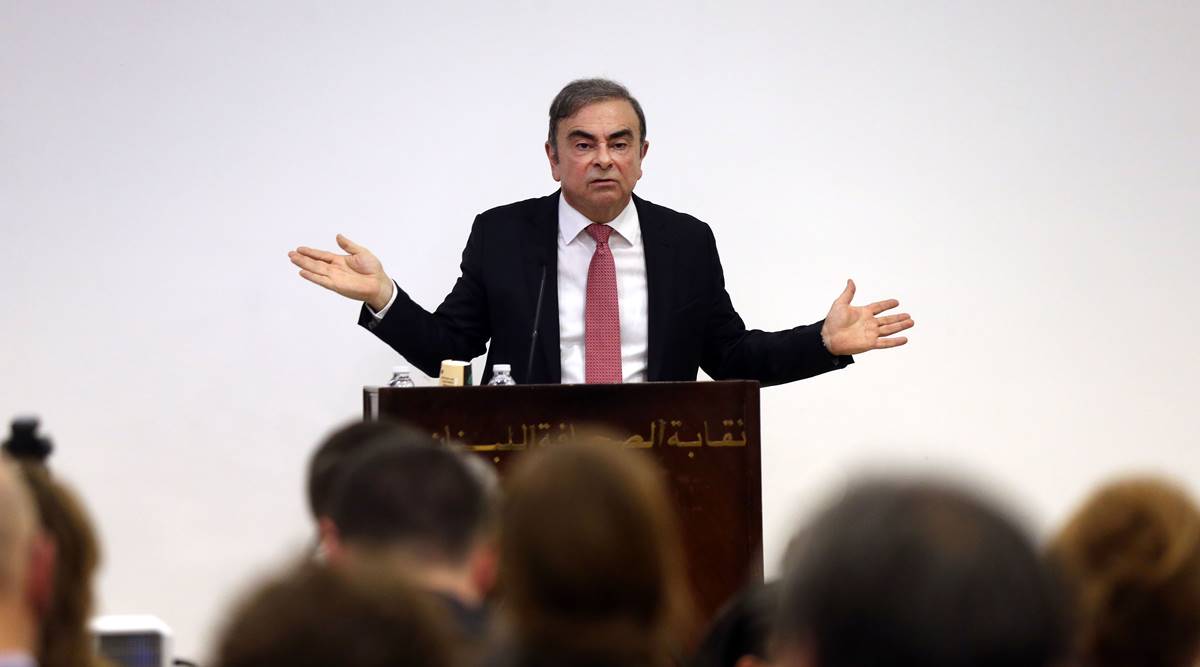The Taylors’ defense team — led by Washington attorney Abbe Lowell — argues Article 103 doesn’t explicitly prohibit “jumping bail,” which is what prosecutors accused the Taylors of helping the former Nissan Motor Co. chairman do when he fled Japan last year before his financial-misconduct trial.
The case for extraditing two men accused of aiding Carlos Ghosn’s escape from Japan will rest largely on a US judge’s interpretation of an arcane provision of Japanese criminal law.
Attorneys for Michael Taylor and his son Peter are expected to turn a Boston court hearing Friday into a technical debate over Article 103 of Japan’s penal code, a legal system enacted under Emperor Meiji in 1907. Article 103 prohibits harboring criminals or enabling the flight of anyone who has committed a crime or escaped from confinement.
The Taylors’ defense team — led by Washington attorney Abbe Lowell — argues Article 103 doesn’t explicitly prohibit “jumping bail,” which is what prosecutors accused the Taylors of helping the former Nissan Motor Co. chairman do when he fled Japan last year before his financial-misconduct trial.
The Taylors’ chances of success appear slim — they’ve been denied bail three times since their arrest in May, and US Magistrate Donald Cabell said in July that their actions appear to “fall squarely within the heartland” of the Japanese law. The two men have hired Washington lawyers and lobbyists to convince the US State Department not to move forward with extradition regardless of the court’s decision, people familiar with the matter said in July.
The hearing on Friday will determine whether Japan has the right to prosecute the Taylors for their role in Ghosn’s dramatic escape even as the former auto executive remains free in Lebanon, which has no extradition treaty with Japan.
The Taylors have never denied they were involved in the escape plot. In a Vanity Fair interview, Michael Taylor described how he executed the operation.
Their defense team has emphasized Japan has failed to produce an indictment charging them with violating any section of the penal code. But the Japanese prosecutor said in an affidavit that he sought the Taylors’ arrests after a Tokyo judge ruled there was probable cause to believe they broke the law.
When a foreign country demands the US turn over American citizens under an extradition treaty, “the federal courts aren’t supposed to delve into the weeds of what the evidence is,” said Washington lawyer Pamela B. Stuart, a former federal prosecutor who handles cases involving extradition and diplomatic immunity. “The evidence is the affidavit of the prosecutor.”
Much of the Taylors’ argument hinges on the meaning of the phrase “harbors or enables the escape.” The Taylors say the English translation doesn’t capture the more complicated Japanese concept that was intended — “working against law enforcement authorities’ active pursuit of a criminal to arrest him.” Because Ghosn was out on bail, the Taylors say, the authorities were not actively pursuing him.
“Even if everything the government alleges were true, those facts do not amount to an extraditable crime under Japanese law,” defense lawyers wrote in a legal brief this month.
? The Indian Express is now on Telegram. Click here to join our channel (@indianexpress) and stay updated with the latest headlines
For all the latest Business News, download Indian Express App.
Source: Read Full Article





